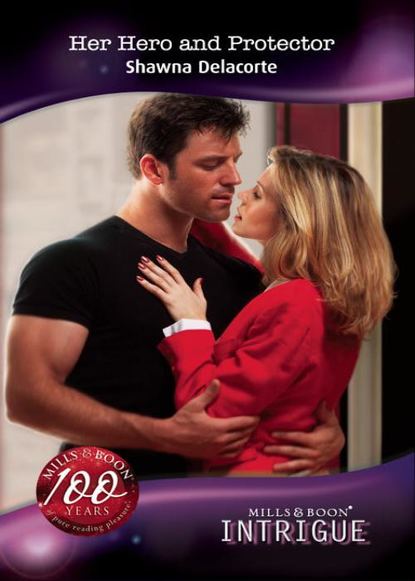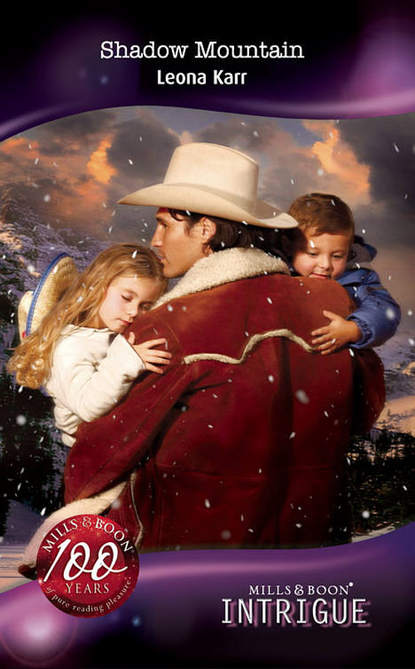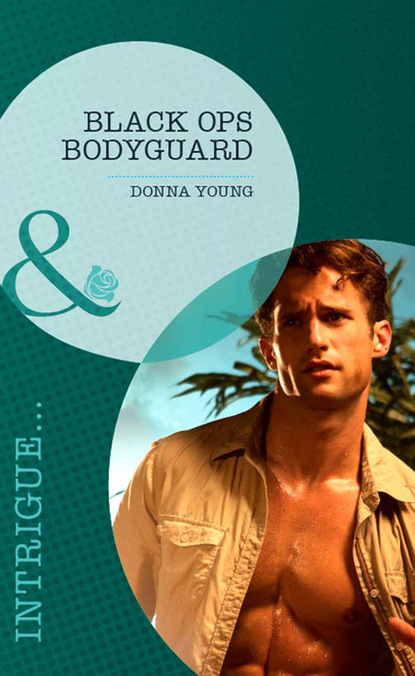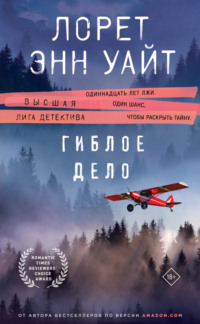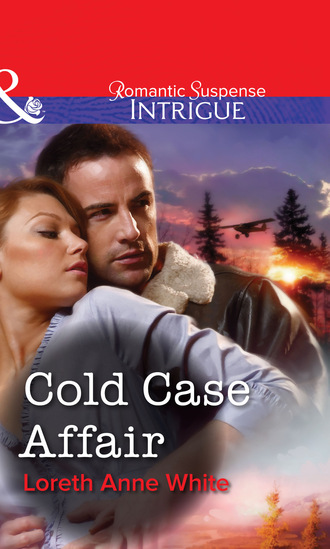
Полная версия
Cold Case Affair

Cold Case Affair
Loreth Anne White

www.millsandboon.co.uk
MILLS & BOON
Before you start reading, why not sign up?
Thank you for downloading this Mills & Boon book. If you want to hear about exclusive discounts, special offers and competitions, sign up to our email newsletter today!
SIGN ME UP!
Or simply visit
signup.millsandboon.co.uk
Mills & Boon emails are completely free to receive and you can unsubscribe at any time via the link in any email we send you.
Table of Contents
Cover
Title Page
About the Author
Dedication
Prologue
Chapter One
Chapter Two
Chapter Three
Chapter Four
Chapter Five
Chapter Six
Chapter Seven
Chapter Eight
Chapter Nine
Chapter Ten
Chapter Eleven
Chapter Twelve
Chapter Thirteen
Chapter Fourteen
Chapter Fifteen
Chapter Sixteen
Chapter Seventeen
Copyright
About the Author
LORETH ANNE WHITE was born and raised in southern Africa, but now lives in Whistler, a ski resort in the moody british Columbian Coast Mountain range. It’s a place of vast wilderness, larger-than-life characters, epic adventure, and romance—the perfect place to escape reality. It’s no wonder she was inspired to abandon a sixteen-year career as a journalist to escape into a world of romantic fiction filled with dangerous men and adventurous women.
When she’s not writing you will find her long-distance running, biking or skiing on the trails, and generally trying to avoid the bears—albeit not very successfully.
She calls this work, because it’s when the best ideas come. For a peek into her world visit her website, www.lorethannewhite.com. She’d love to hear from you.
Dear Reader,
How far would you go to keep a secret? Are some secrets better left buried, or does truth liberate, always? And at what point, exactly, does a secret between two people who care for each other start becoming a lie by omission?
These are questions my heroine, Muirinn O’Donnell, must confront when she returns to her childhood home, where the secret of her father’s murder—and her grandfather’s death—lies buried deep in an abandoned mine, and in the psyche of a small Alaskan coastal town.
To find the truth, she has no choice but to turn to Jett Rutledge, the man she has always loved, but couldn’t have. And in unearthing the dark and terrible truths of their shared past, Muirinn and Jett must in turn reveal their own deep secrets—secrets that both bind and divide—and fight for a second chance.
But will a killer give them time?
Loreth Anne White
For Toni Anderson, who is always ready to meet me at the water cooler on days both good and bad. To Susan Litman, for keeping that bar raised. And to Jennifer Jackson for believing in me.
Prologue
Seven hundred fifty feet under the Alaskan earth the air was dank, the shaft black as pitch.
Spring runoff—an icy sludge of water and mud—gushed down over him as he descended a wooden ladder slick with rot and moisture, foot by tortuous foot, into the cold womb of the earth. The small lamp on his mining cap pierced the blackness with a quavering halo of yellow, shadows lunging at him whenever he moved.
It was 3:42 a.m.
By the time he reached the 800 level, his knee was locked in pain, his fingers dead. He suffered from white hand—the nerves in his hands permanently damaged from the constant vibration of the heavy pneumatic jackleg drill that shuddered daily through his body as he drove blast holes into rock.
Miners got cold, they got wet and they got old as they toiled in perpetual blackness, forcing tunnels deeper and deeper into the bowels of the earth to extract ore that would be turned into bright, gleaming gold. And he was no different—his body just as battered.
Dragging his left leg now, he made his way to the scoop tram shop. He was edgy. Even at this hour, someone could be in this part of the mine. He took a tram and drove it along the tunnel to the powder magazine. Breathing hard, he worked quickly to load two bags of explosives, a couple of powder sticks, detonator caps, B-line.
By 5:02 a.m. he was tackling the knee-grinding, lung-busting seventy-story ascent to the earth’s surface. He exited the shaft at the deserted Sodwana headframe, three miles away from the main gates of the Tolkin Mine, limbs shaking. Waiting for him in cold predawn shadows was a friend with a hard shot of whiskey and a ride back into town.
At 6:33 a.m., on that bleak Alaskan morning, a man-car loaded with twelve miners trundled and screeched along the black drift eight hundred feet below ground. The men—all from the small town of Safe Harbor—huddled facing each other, knees touching, clutching thermoses and lunch pails as they made their way to their workstations for the day.
The beam from the headlamp of the man sitting in front lit the rail ahead. He spun around suddenly, terror on his face as he tried to shout a warning.
But it was too late.
The blast was massive, rocking the ground above, registering on sensitive seismic monitoring equipment as far away as the university in Anchorage.
The first external agency to be notified of an unexplained explosion in the bowels of Tolkin Mine was the Safe Harbor Fire Department. Seconds later Safe Harbor Hospital was on high alert for possible mass casualties, and frantic calls were going out for all available doctors to be on standby. These calls were picked up on home scanners, the news rippling like brushfire through the small, close-knit community. Family members hysterical with worry converged on the mine site.
Adam Rutledge, head of mine rescue and the shop steward for the local miners’ union, scrambled into his Draegers—mine rescue gear complete with breathing apparatus. He hurriedly contacted the members of his volunteer team.
When they reached the mine, acrid black smoke was billowing out from D-shaft and the extraction vents. At this point, no one aboveground knew what had happened eight hundred feet below. Snowflakes began to crystallize in the frigid air and a group of women shivered together against a biting wind, not knowing if their men were alive, injured or dead.
Among them was Mary O’Donnell, clutching the hand of her nine-year-old daughter, Muirinn.
Muirinn watched the rescuers tumble out of a bright yellow bus in their Draegers, led by their neighbor, Adam Rutledge—her friend Jett’s father.
But a police officer flanked by burly mine security men stopped Adam and his crew at the gate. One had a gun. Angry voices carried on snatches of wind as Adam clashed with the police. A German shepherd strained against his leash, barking and baring teeth at Adam. The cop then drew his gun. Adam raised both hands, backing off. Swearing.
Muirinn grew very scared.
She knew the whole town was at war over the big mine strike, neighbors pitted against neighbors, family members against each other. That’s why all the police and security men were here. Still, she didn’t understand why they wouldn’t let Mr. Rutledge and the mine rescue team in—her dad was down there.
Desperation squeezed the nine-year-old’s heart.
Snow swirled thicker. Temperatures dropped.
Slowly, miners began to emerge from the earth, blackened with soot, choking from emergency stench gas released by management into the tunnels to warn them out of the mine. Muirinn and her mother stood alone as other families were reunited all around them. A few women started to sob. Their men hadn’t come up yet, either.
Then Safe Harbor Police Chief Bill Moran came striding through the snow toward Muirinn and her mother, flakes settling thick on the wide brim of his hat.
When she saw the look in his eyes, Muirinn knew her daddy was never coming back.
By late afternoon, Chief Moran had examined the scene and learned of the two bags of explosives missing from the powder magazine. Positive he was now dealing with a mass homicide investigation, he’d contacted the FBI field office in Anchorage, and Tolkin Mine was locked down as they waited for the postblast team. But the spring snowstorm had other ideas. It barreled in and powered down with a vengeance, unleashing blizzardforce winds on Safe Harbor, cutting off access to the remote Alaskan coastal community. The FBI team was unable to land in Safe Harbor for a full forty-eight hours. The television crews came shortly after, filling the few hotels and restaurants in the tiny mining town. As the story of mass murder in the North broke, it rippled across television screens south of the 49th.
Three months later, Muirinn stood beside a hospital bed, tears streaming down her face. Sheer grief had stolen her mother’s life.
Muirinn was taken home to be raised by her grandfather, Gus O’Donnell, her last living relative.
Someone had planted a bomb that had killed Muirinn’s father, taken her mother, and changed her life forever.
And the police never found him.
The heinous secret remained buried deep in the abandoned black tunnels of Tolkin Mine. And a mass murderer still walked among the villagers of Safe Harbor.
Chapter 1
Twenty years later
The wings banked as the pilot began a steep descent into an amphitheater of shimmering glacial peaks at the head of Safe Harbor Inlet, a small and isolated community that clung to a rugged coastline hundreds of miles west of Anchorage.
When Muirinn O’Donnell fled this place eleven years ago, those granite mountains had been a barrier to the rest of the world, a rock and ice prison she’d sought desperately to escape. Now they were simply beautiful.
Pontoons slapped water, and the tiny yellow plane squatted down into a churning white froth as the engines slowed to a growl. The pilot taxied toward a bobbing float plane dock.
She was back, the prodigal daughter returned—almost seven months’ pregnant, and feeling so incredibly alone.
Muirinn clasped the tiny whalebone compass on a small chain around her neck, drawing comfort from the way it warmed against her palm. Her grandfather, Gus O’Donnell, had left her the small compass, along with everything else he owned, including the house at Mermaid’s Cove and Safe Harbor Publishing, his newspaper business.
His death had come as a terrible shock.
Muirinn had been on assignment in the remote jungles of West Papua for the magazine Wild Spaces when Gus’s body had been found down a shaft at the abandoned Tolkin Mine, a full thirteen days after he’d first been reported missing. And no one had been able to reach her until two weeks ago.
She’d missed his cremation and the memorial service, and she was having trouble wrapping her head around the circumstances of his death.
Muirinn had called the medical examiner herself. He’d told her Gus had been treated for years for a heart condition, and that he’d suffered cardiac arrest while down the mine shaft, which had apparently caused him to tumble a short way from the ladder to the ground. Muirinn could not imagine why her eccentric old grandfather would have been alone in the shaft of an abandoned mine. Especially if he had heart trouble.
And she was unable to accept that the dank maw of Tolkin had swallowed the life of someone else she loved.
Gus had raised her solo from the age of nine, after the death of her parents, and while Muirinn had never come home to visit him, she’d loved her grandfather beyond words.
Just the knowledge that Gus was in this world had made her feel part of something larger, a family. In losing Gus, she’d somehow lost her roots.
All she had now was this little compass to guide her.
Muirinn peered out the small window as the floatplane approached the dock, thinking that nothing had changed, yet everything had. Then suddenly she saw him.
Jett Rutledge.
The one person she’d sought to avoid for the past eleven years. The reason she’d stayed away from her hometown.
He stood at the ferry dock on the opposite side of the harbor, wearing jeans and a white T-shirt, his skin tanned summer dark, his body lean and strong. His thick blue-black hair glistened in the late-evening sun.
Muirinn’s stomach turned to water.
She leaned forward, hand pressing up against the window as the plane swung around and bumped against the dock. And like a hungry voyeur she watched as the man she’d never stopped loving crouched down to talk to a boy—a boy with the same shock of blue-black hair. The same olive-toned complexion.
His son.
Muirinn’s eyes brimmed with emotion.
He ruffled the child’s hair, put a baseball cap on the boy’s head and cocked the peak down over his eyes. Jett stood as his kid raced toward the ferry, little red backpack bobbing against his back.
The child hesitated at the base of the gangplank, drawn by some invisible tie to his father. He spun around suddenly, and even from this distance Muirinn could see the bright slash of a smile in the boy’s sun-browned face as he waved fiercely to his dad one last time before boarding the boat.
At the same time a woman approached Jett, the ocean wind toying with strands of her long blond hair. Her stride was confident, happy. She placed her hand on Jett’s arm, gave him a kiss, then followed the child up the passenger ramp.
That vignette—framed by the small float plane window—struck Muirinn hard.
Her eyes blurred with emotion and a lump formed in her throat. As the sound of the prop died down and the plane door was swung open, Muirinn heard the ferry horn and saw the boat pulling out into the choppy inlet.
Jett walked slowly to the edge of the dock, hands thrust deep in his jeans pockets as he watched the ferry drawing away in a steady white V of foam. He gave one last salute, hand held high in the air, a solitary yet powerful figure on the dock. A lighthouse, a rock to which his boy would return.
“You ready to deplane, ma’am?”
Shocked, she turned to face the pilot. He had a hand held out to her, a look of concern in his eyes. She got that a lot at this stage of her pregnancy.
“Thank you,” she said, quickly donning her big, protective sunglasses as she took his hand. She stepped down onto the wooden dock, disoriented after her long series of flights from New York. Two cabs waited up on the road as the handful of passengers from Anchorage disembarked around her.
Muirinn climbed into the first taxi and gave directions to what was now her property on Mermaid’s Cove, a small bay tucked into the ragged coastline a few miles north of town. But on second thought she leaned forward. “I’m sorry, but could you take the long way around town? Not along the harbor road.”
Or the past the airstrip.
There was a risk of seeing Jett again if they went that way. She wasn’t ready for that—even from a distance. Not now.
Not after seeing him with his son. And his wife.
Muirinn’s lawyer in New York had told her that Jett Rutledge had led the search team that located Gus’s body in the mine. This news had rattled her—the idea of Jett still here in Safe Harbor, still saving people when she hadn’t allowed him to save her all those years ago. It was almost too painful to imagine.
Muirinn also knew from her grandfather that Jett had married in Las Vegas shortly after she’d left town eleven years ago, and that he’d had a child. The news had nearly killed her because Jett had refused to follow her to Los Angeles just a few months before. And when she’d learned that she was pregnant with Jett’s baby, she’d been too proud—too afraid—to return home. And so she’d chosen to bear the child alone.
At nineteen, with no money and few prospects, Muirinn had ended up giving their baby up for adoption, a decision that still haunted her.
She’d never gotten over it.
Muirinn had also learned from Gus that Jett had joined the ranks of Alaska’s bush pilots, a free-spirited breed unto themselves. And that’s when she’d told her grandfather to stop.
She didn’t want to hear one more word about Jett and his happy little family. It was driving her crazy with the pain of her own losses, so Muirinn had resorted to her tried-and-true coping mechanism—she just severed ties, cutting herself off from the source of her angst. And her grandfather had respected her request.
From that point on, Muirinn knew nothing more about Jett’s life. She hadn’t even wanted to know his wife’s name. And sheer stubborn pride forbade her from ever asking about Jett again, or from coming home. Pride, and her dark secret.
All Muirinn knew for certain was that she’d lost the only man she’d ever loved through the biggest mistake of her life. One she’d never stopped regretting. Because after Jett she’d had one failed relationship after another, no man ever quite measuring up to him.
Which was why she was having a baby on her own now.
She sank back into the cab seat, wondering where Jett’s son and wife were going on that ferry. It was late July. School was out. The kid might be going to a summer camp, or with his mother on a trip to Seattle. Anywhere.
It was none of her business.
Muirinn had given up any claim to Jett Rutledge a long, long time ago.
Yet a poignant sadness pressed through her, and she closed her eyes, placing her hand on her belly.
Do you still hate me so much, Jett?
What would she do if his parents still owned the neighboring property on Mermaid’s Cove?
Muirinn had grown up on that cove. She and Jett had stolen their first-ever kiss down in the old boat shed, hidden from the houses by a dense grove of trees. She wondered if the shed still stood.
They’d made love for the first time in that shed, too, on a night the moon had shimmered like silver over the water. She’d just turned eighteen, and Jett twenty-one. The boat shed had become their special place, and there was a time Muirinn had thought it would all be there for her forever.
But the summer she turned nineteen, everything changed.
As the cab neared the Mermaid’s Cove property, Muirinn asked the driver to drop her off at the ramshackle gate.
Bags in hand, she stood at the top of the overgrown driveway, staring down at her childhood home as the taxi pulled off in a cloud of soft glacial dust.
The scene in front of her seemed to shimmer up out of her memory to take literal shape in front of her—the garden and forest fighting for supremacy; brooding firs brushing eaves with heavy branches. Wild roses scrambled up the staircase banisters, and berry bushes bubbled up around the wooden deck that ran the length of the rustic log house.
On the deck terra-cotta pots overflowed with flowers, herbs, vegetables; all evidence of her grandfather’s green thumb. And beyond the deck, the lawn rolled down to a grove of trees, below which Mermaid’s Cove shimmered.
In a few short months this would all be gone and piled high with snow. Safe Harbor was known for the heaviest accumulation among Alaskan coastal towns.
Numbly, Muirinn walked down the driveway and set her bags at the base of the deck stairs, bending to crush a few rosemary leaves between her fingers as she did.
She drank in the scent of the herbs, listening to the hum of bees, the distant chink of wind chimes, the chuckle of waves against tiny stones in the bay below. It amazed her to think that her grandfather was actually gone; evidence of his life thrummed everywhere.
She looked up at the house, and suddenly felt his presence.
I’m so sorry for not coming home while you were still here. I’m sorry for leaving you alone.
A sudden breeze rippled through the branches, brushing through her hair. Muirinn swallowed, unnerved, as she picked up her bags.
She made her way up the stairs and dug the house key out of her purse.
Pushing open the heavy oak door with its little portal of stained glass, Muirinn stepped into the house, and back into time. She heard his gruff voice almost instantly.
‘Tis the sea faeries that brought you here, Muirinn. The undines. They brought you up from the bay to your mother and father, to me. To care for you for all time.
Emotion burned sharply into her eyes as her gaze scanned the living room, full of books, paintings, photos of her and her parents. For years Muirinn hadn’t thought of those fantastical tales Gus had spun in her youth. She’d managed to lock those magical myths away deep in the recesses of her memory, behind logic and reason and the practicalities of work and life in a big city. But now they swept over her—there was no holding them back. This homecoming was going to be rougher than she thought.
More than anything, though, it was Gus’s artwork that grabbed her by the throat.
She slumped into a chair, staring at the paintings and sketches that graced the walls. She was in almost all of them—images of a wild imp, frozen in time, in charcoal, in soft ethereal watercolor. In some, her hair flowed out in corkscrew curls as she swam in the sea with the tail of a fish. In others, Gus had taken artistic license with her features, giving her green eyes even more of a mischievous upward slant, her ears a slight point, depicting her as one of the little woodland creatures he used to tell her lived up in the hills.
Eccentric to the core, Gus O’Donnell had been just like this place. Rough, yet spiritual. Wise, yet a dreamer. A big-game hunter, fisherman, writer, poet, artist. A lover of life and lore with a white shock of hair, a great bushy beard and the keen eyes of an eagle.
And he’d raised her just as wildly, eclectically, to be free.
Not that it had boded well for her. Because Muirinn hadn’t felt free. All she’d wanted to do was escape, discover the real world beyond her granite prison.
Sitting there in a bent-willow rocker, staring at her grandfather’s things, exhaustion finally claimed Muirinn, and she fell into a deep sleep.
She woke several hours later, stiff, confused. Muirinn checked the clock—it was almost 10:00 p.m. At this latitude, at this time of year, it barely got dark at night. However, clouds had started scudding across the inlet, lowering the dusky Arctic sky with the threat of a thunderstorm. A harsh wind was already swooshing firs against the roof.
Muirinn tried to flick on a light switch before realizing that she had yet to figure out how to reconnect the solar power. She lit an oil lamp instead and climbed the staircase to her grandfather’s attic office. The lawyer had said all the keys she’d need for the house, along with instructions on how to connect the power, would be in the middle drawer of her grandfather’s old oak desk.
She creaked open the attic door.
Shadows sprang at her from the far corners of the room. Muirinn’s pulse quickened.
Her grandfather’s carved desk hulked at the back of the room in front of heavy drapes used to block out the midnight sun during the summer months. A candle that had drowned in its own wick rested on the polished desk surface, along with Gus’s usual whiskey tumbler. A pang of emotion stung Muirinn’s chest.




